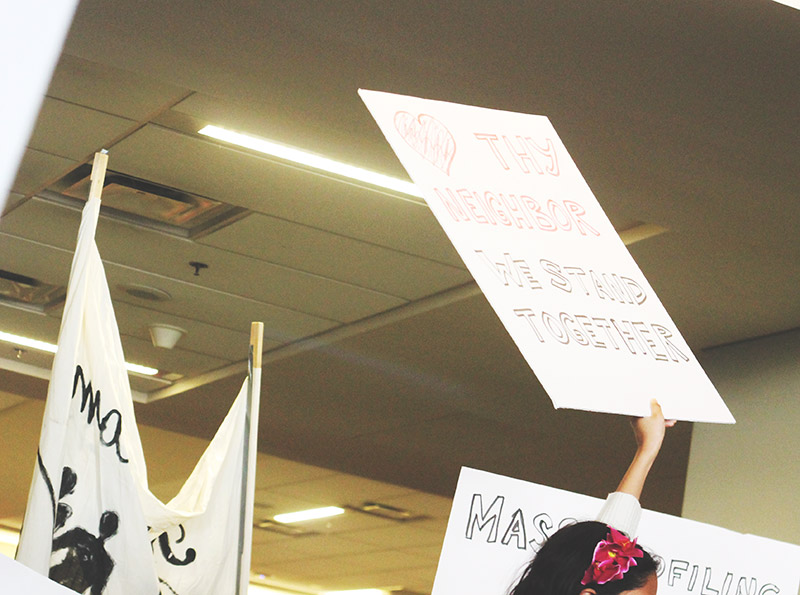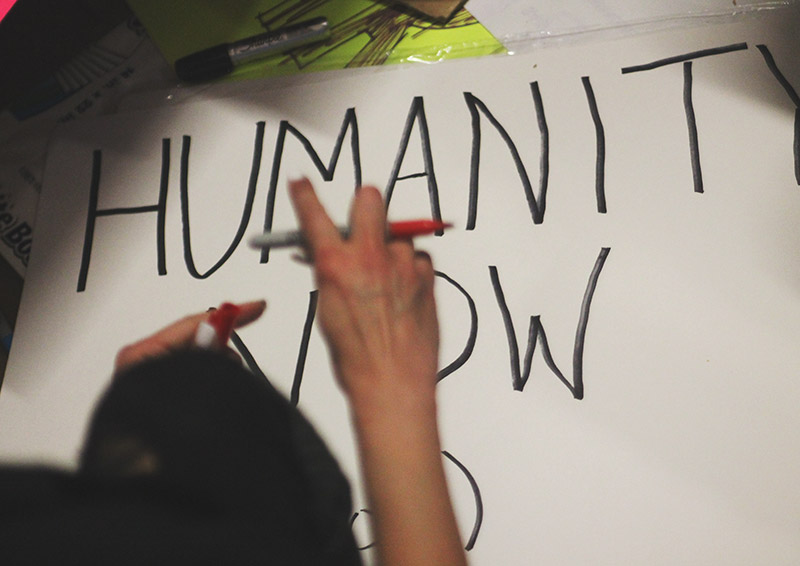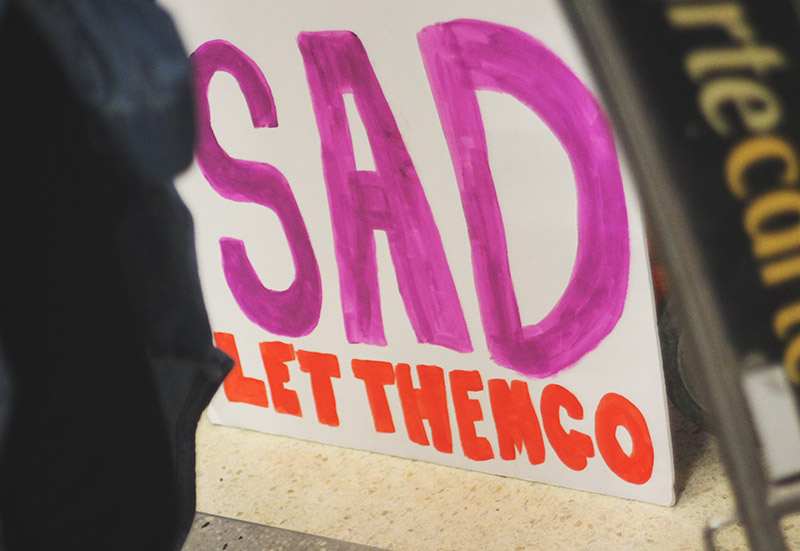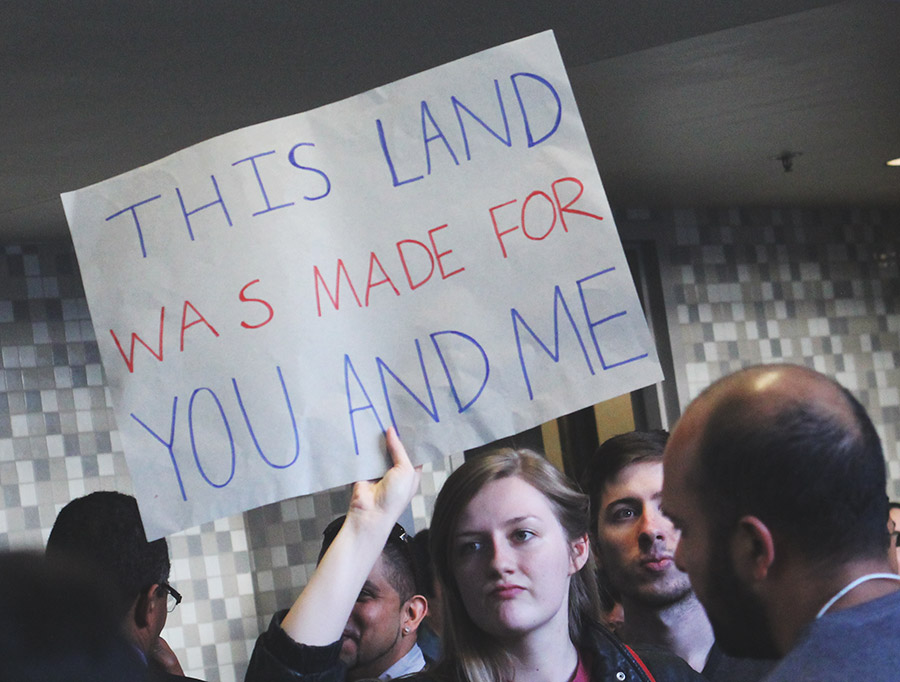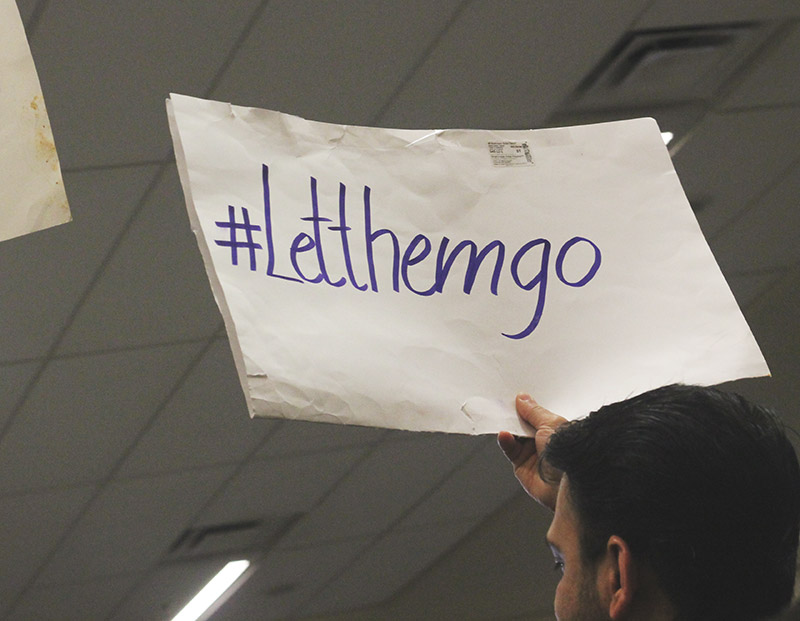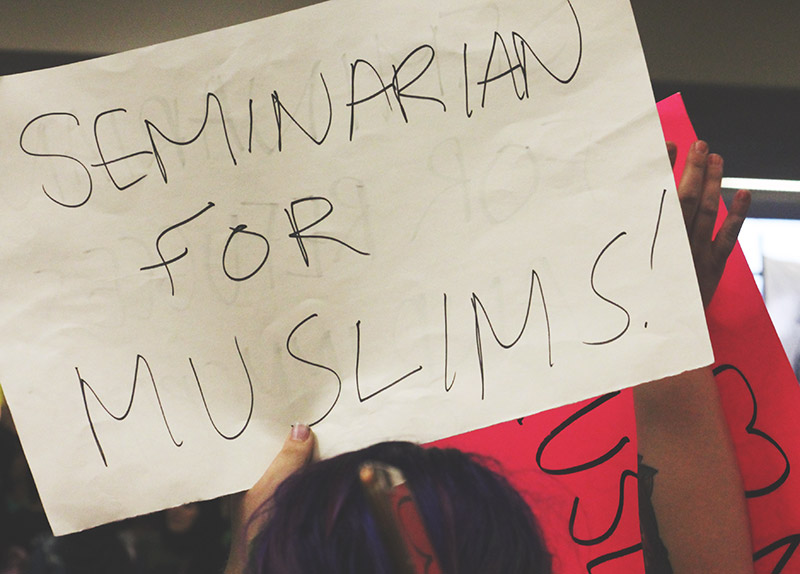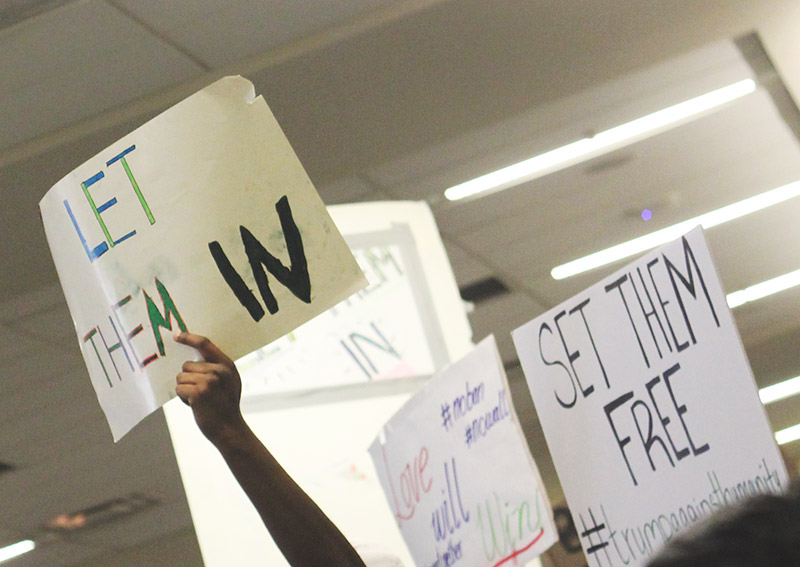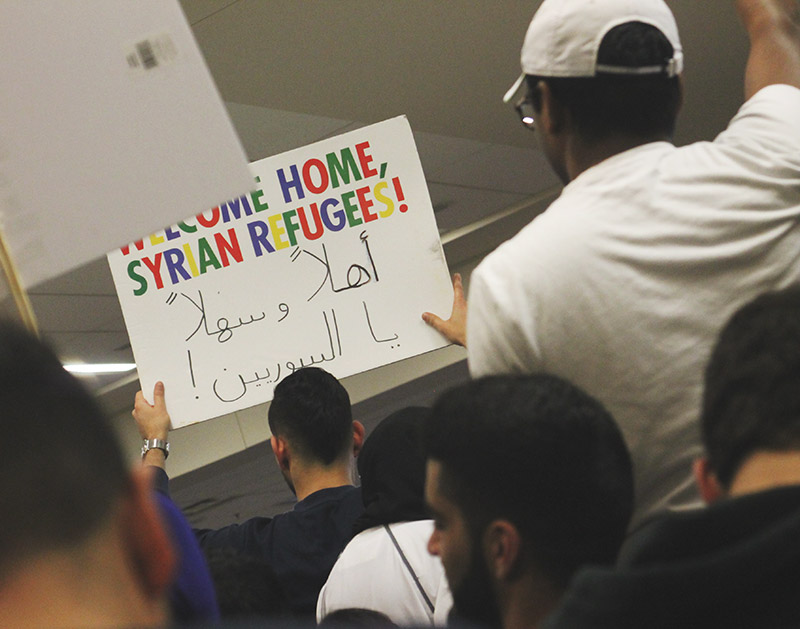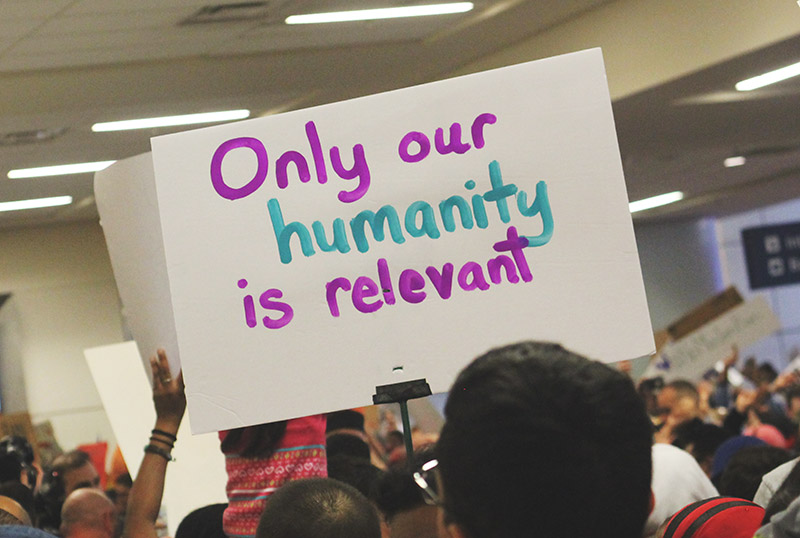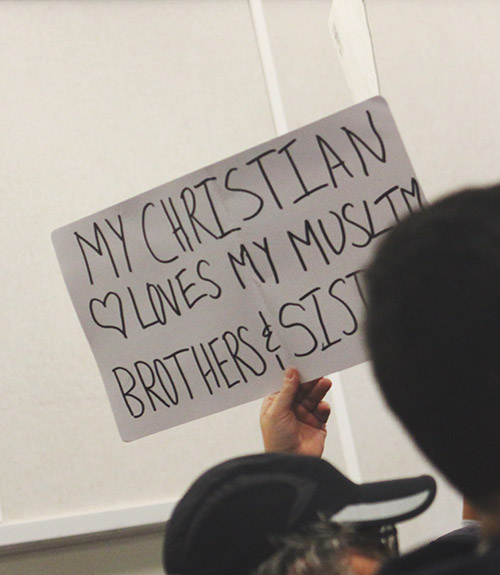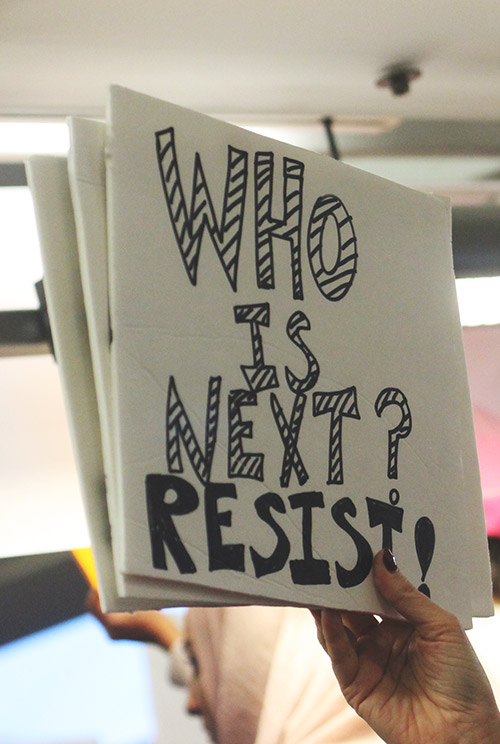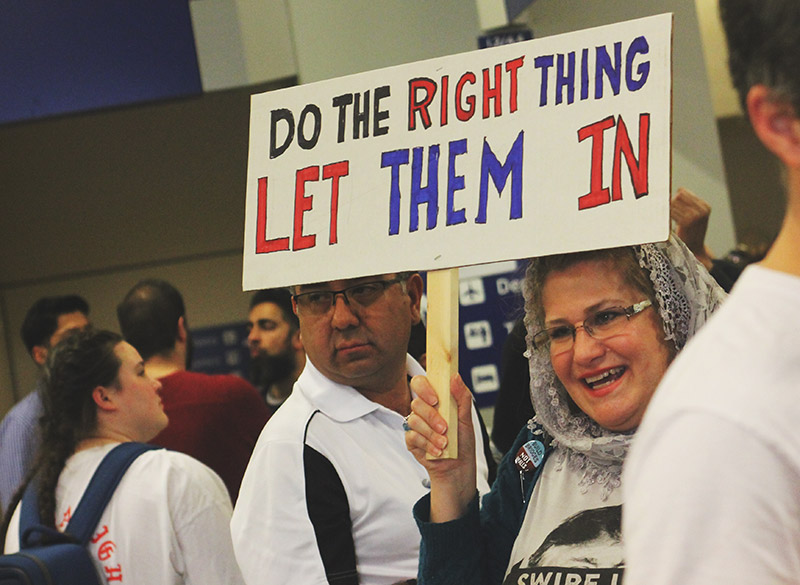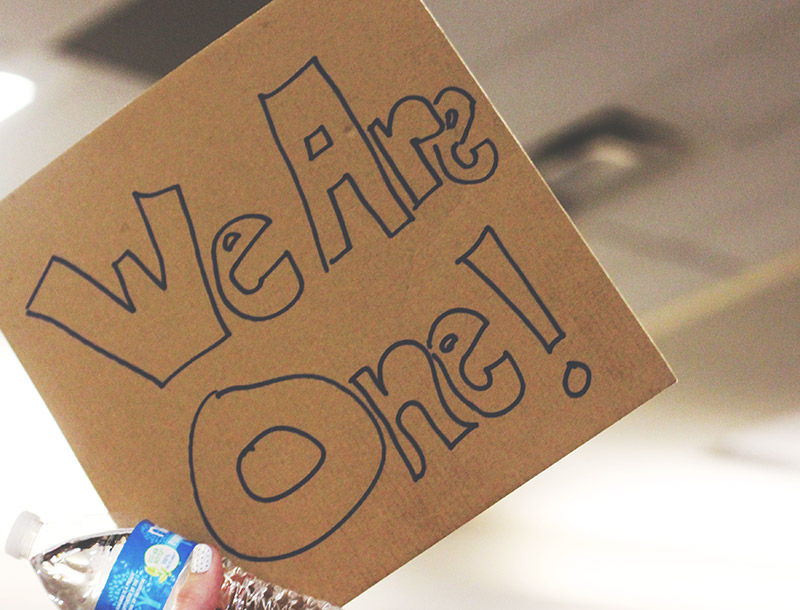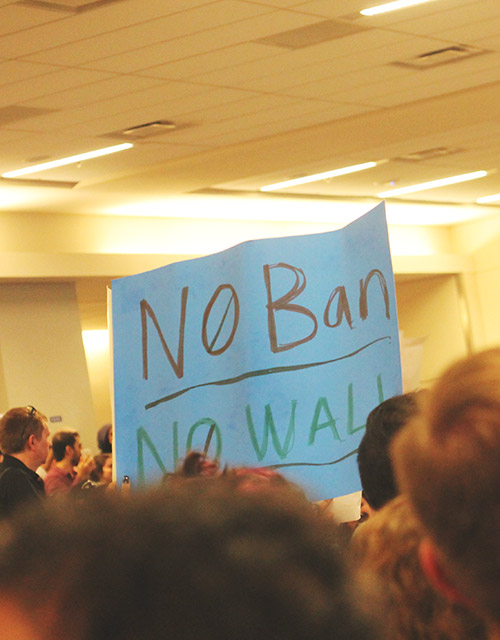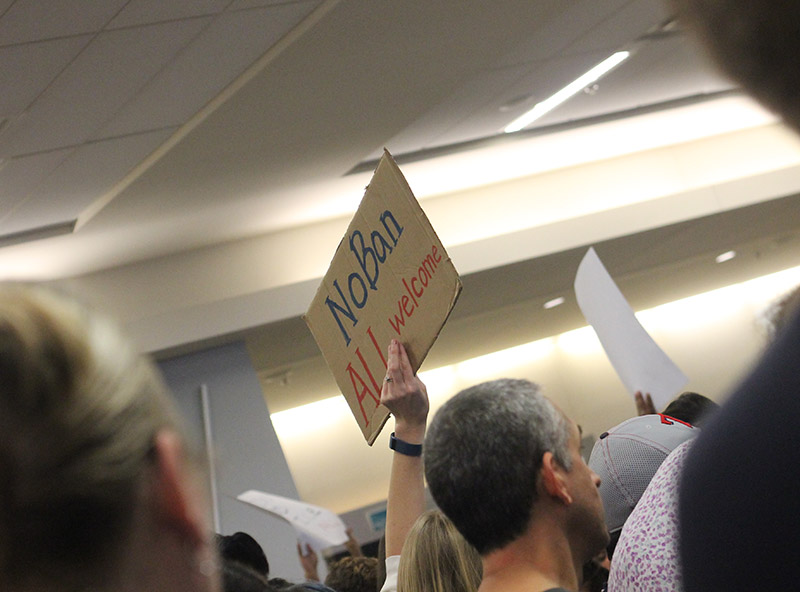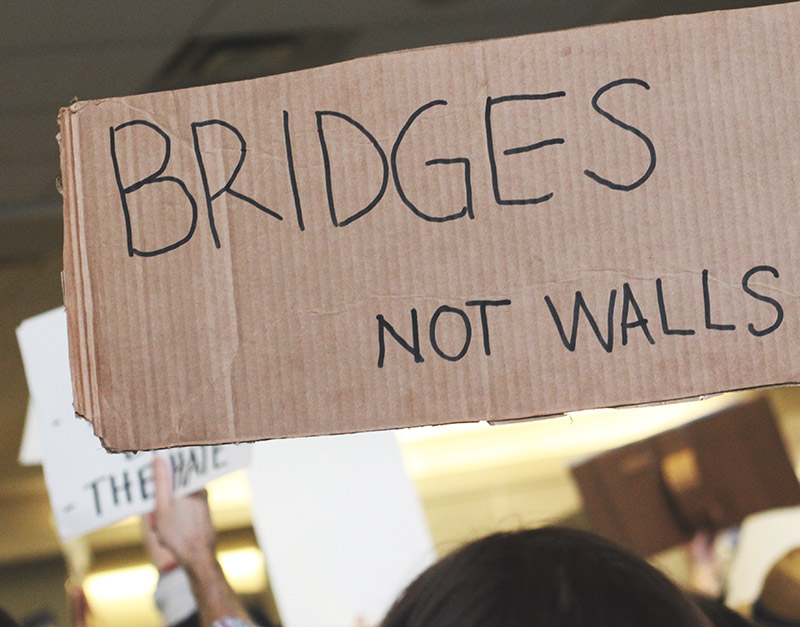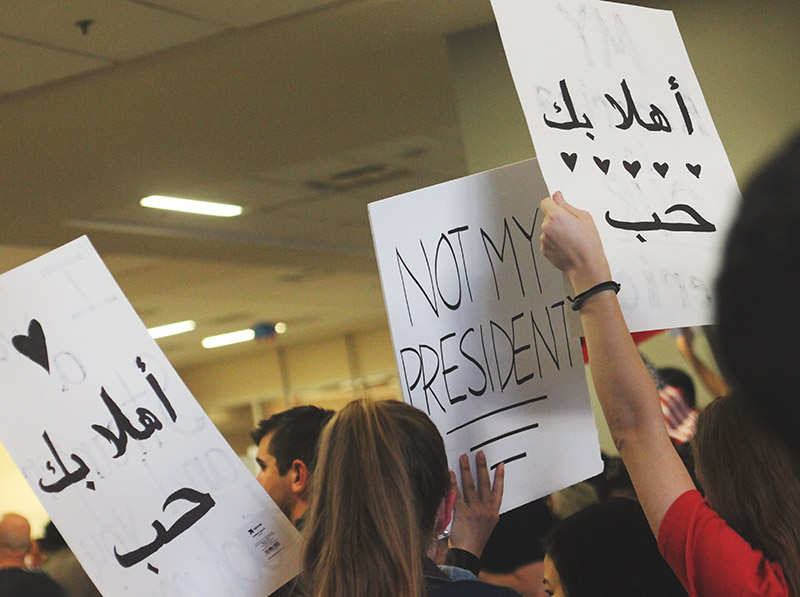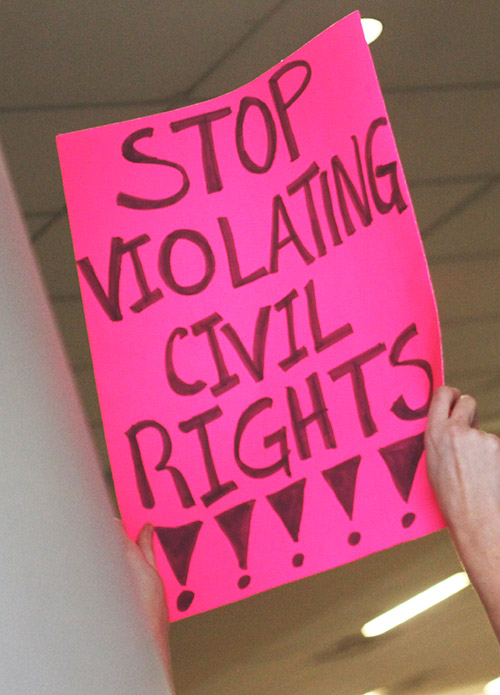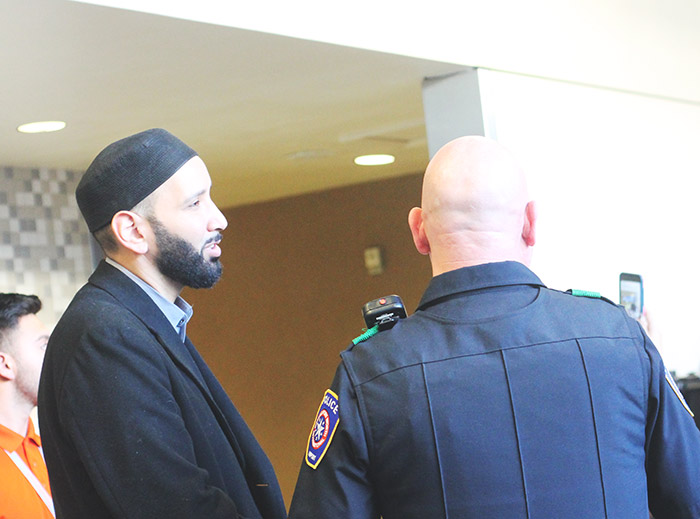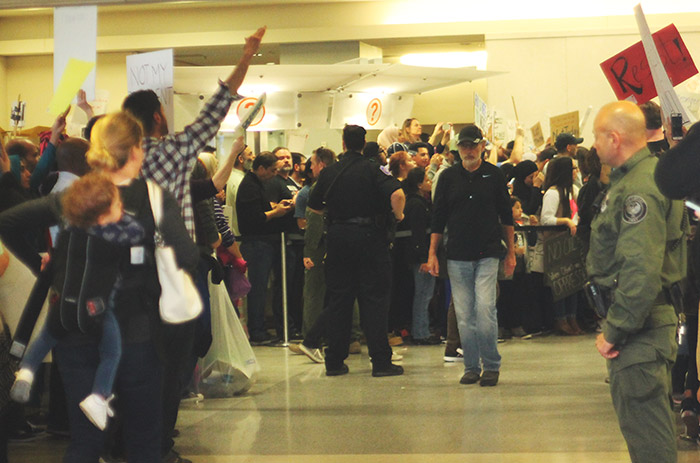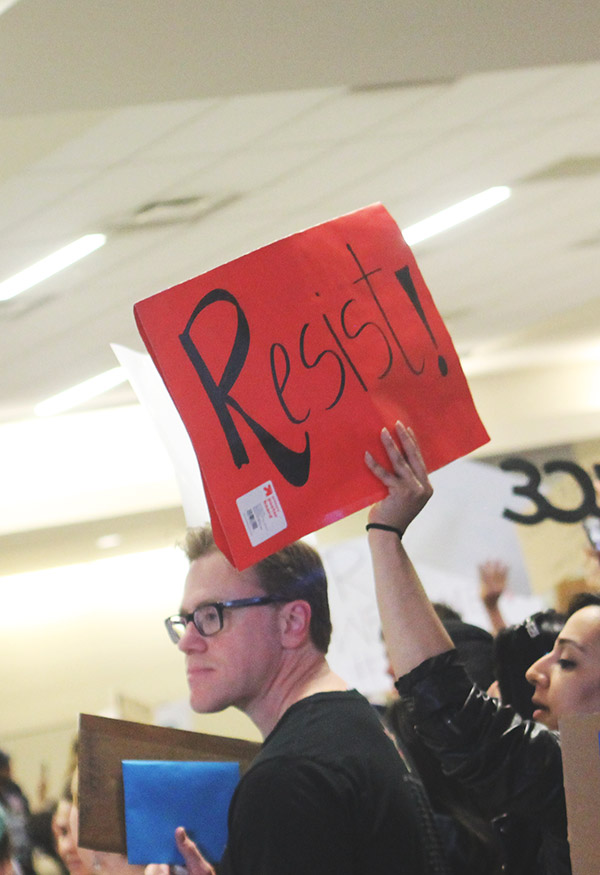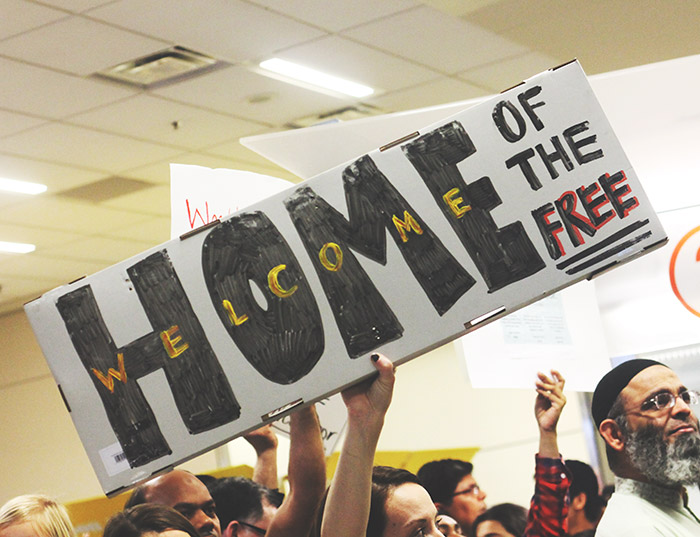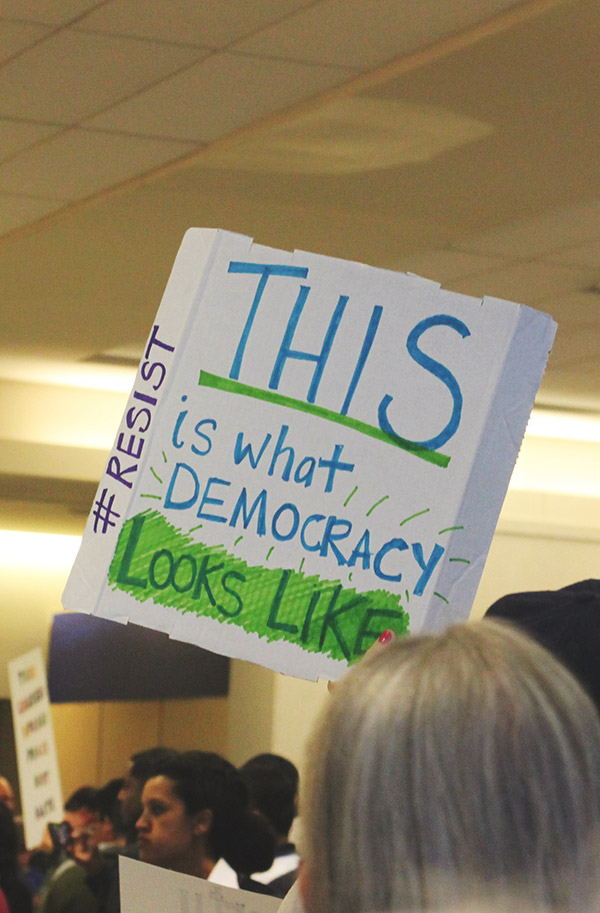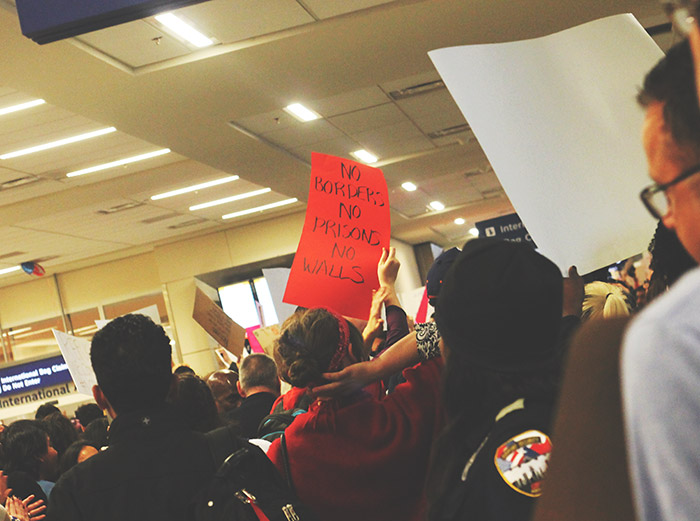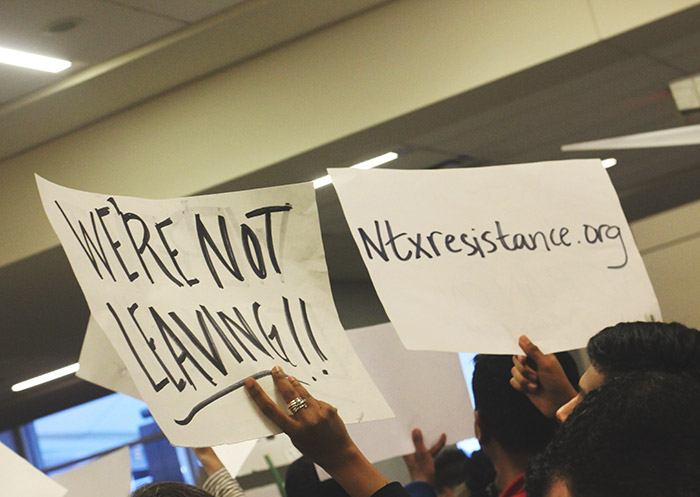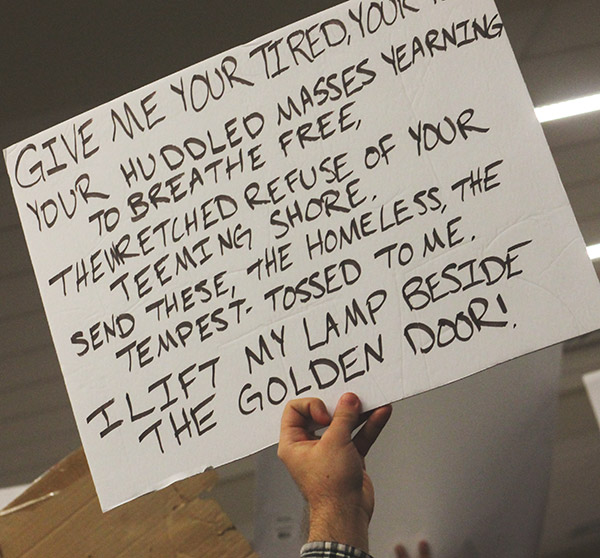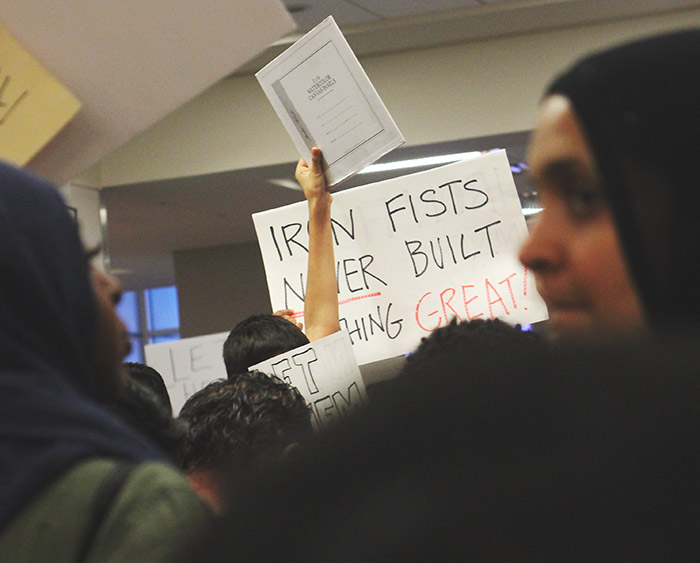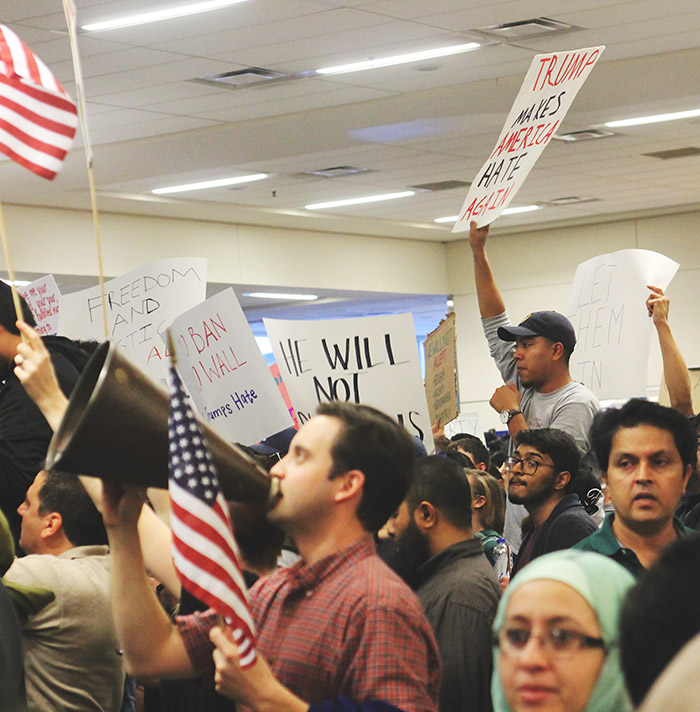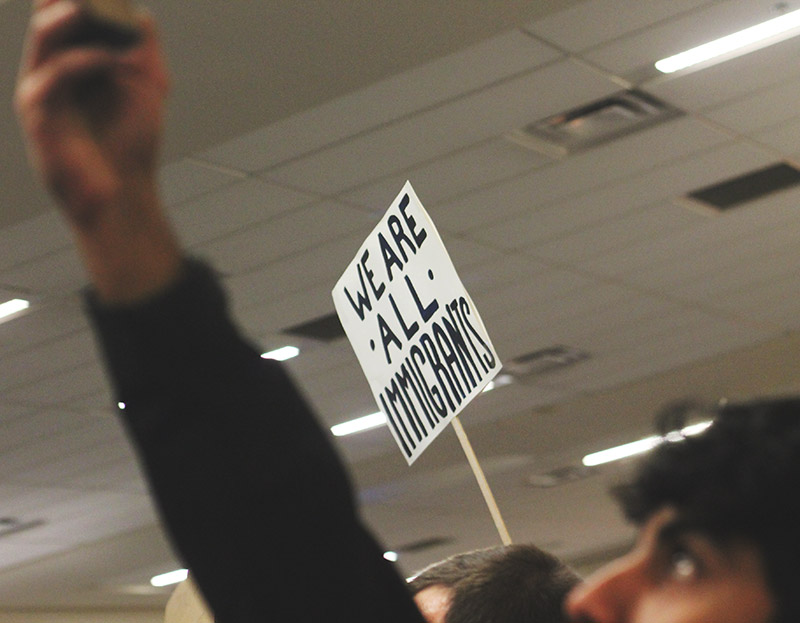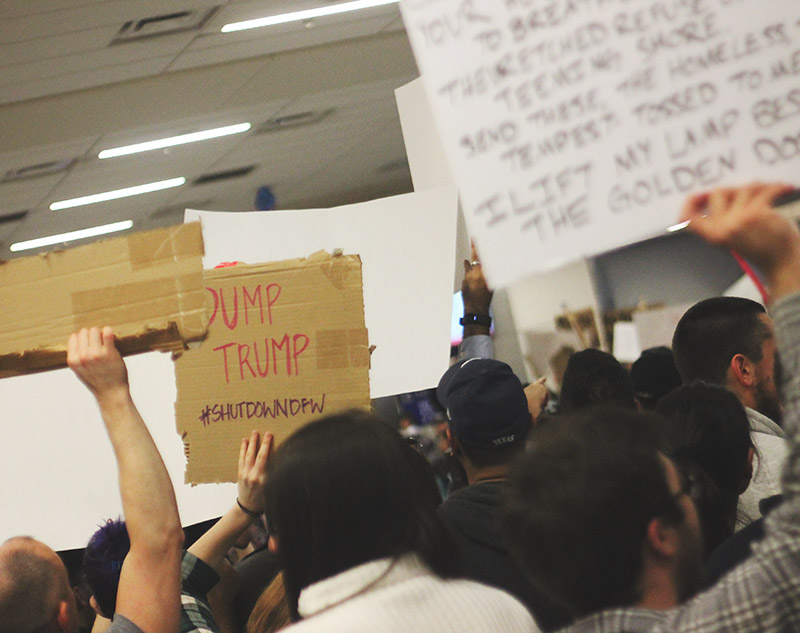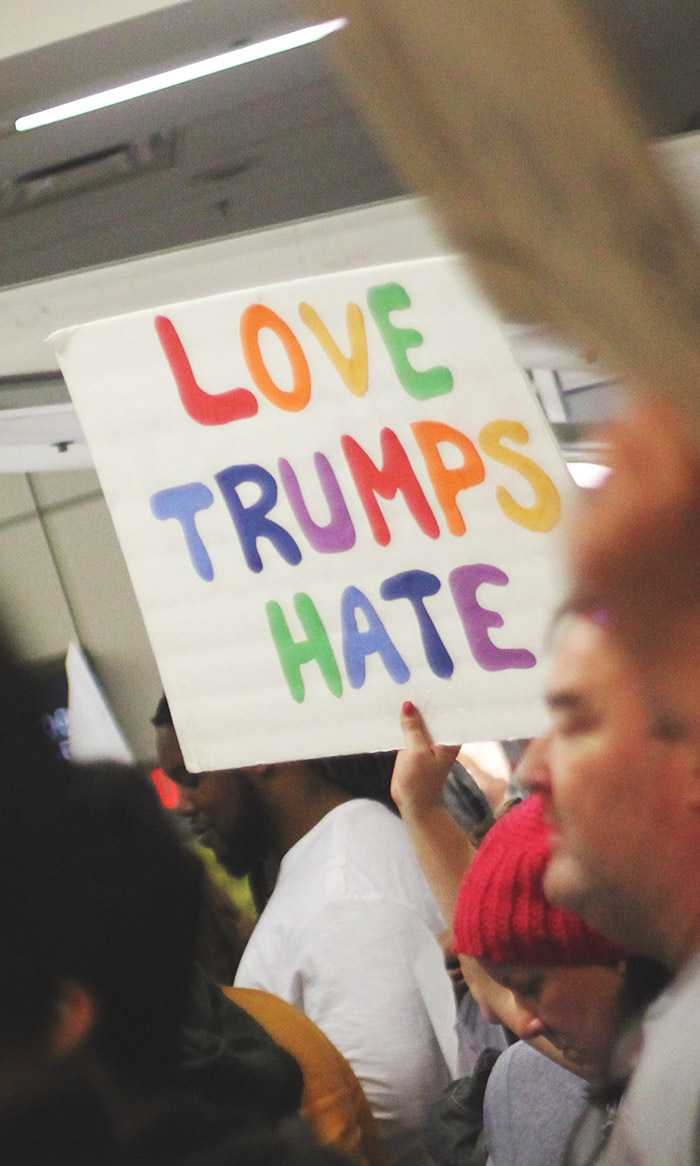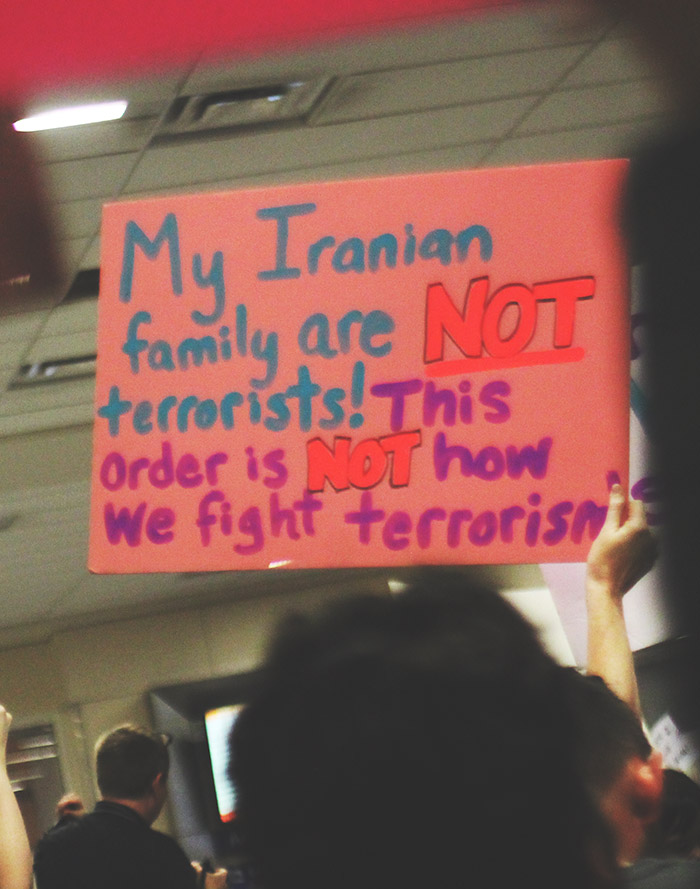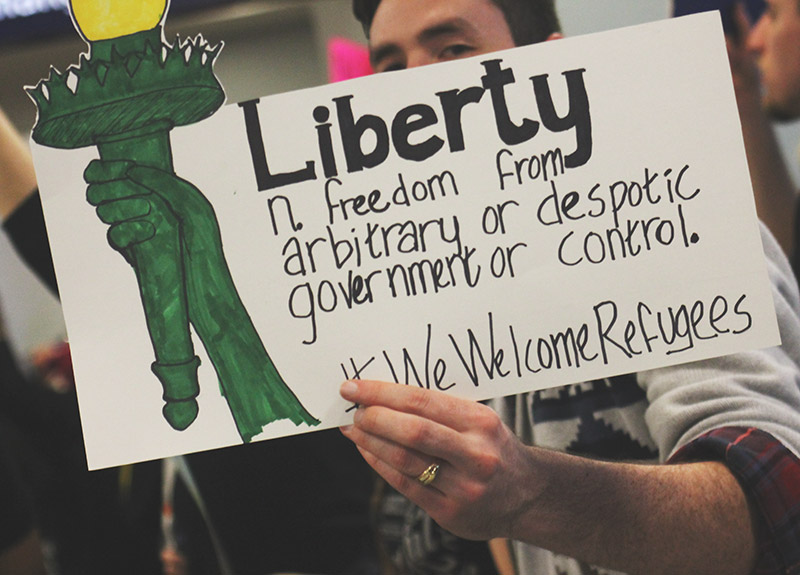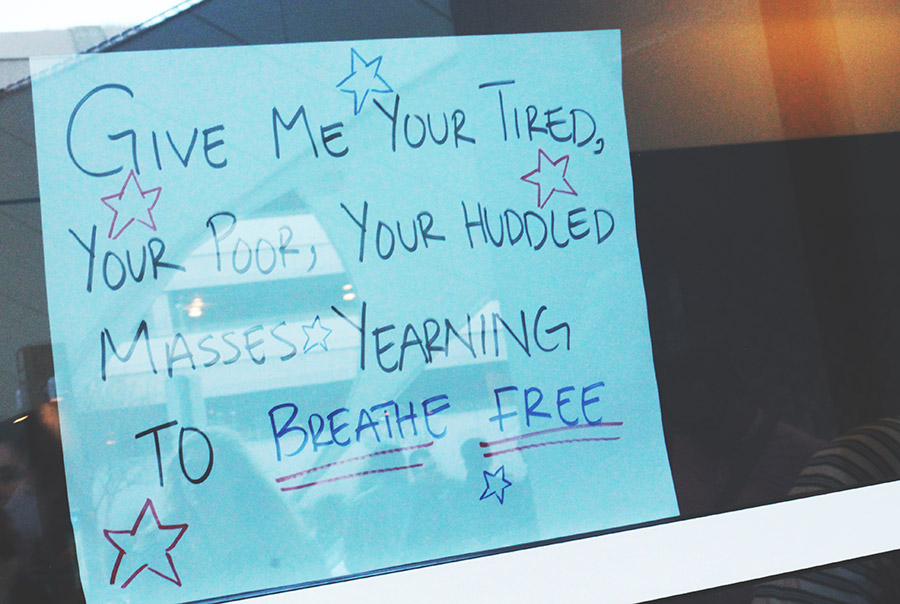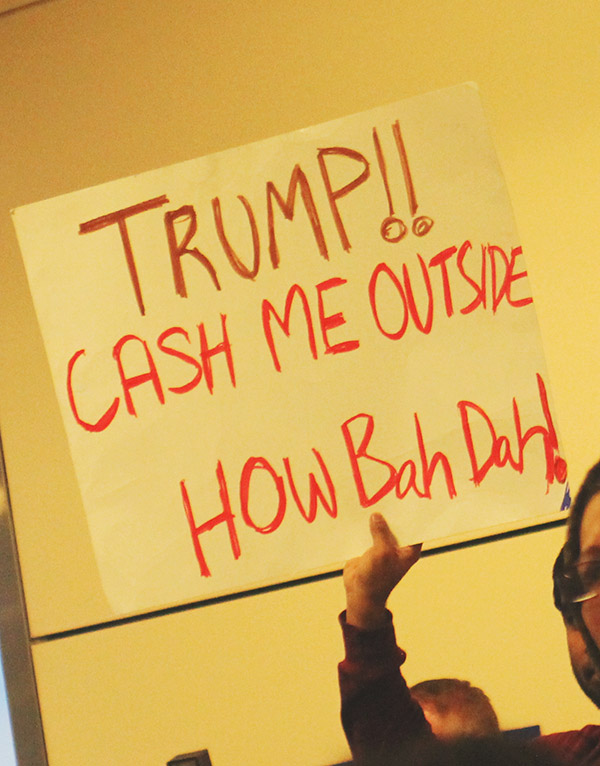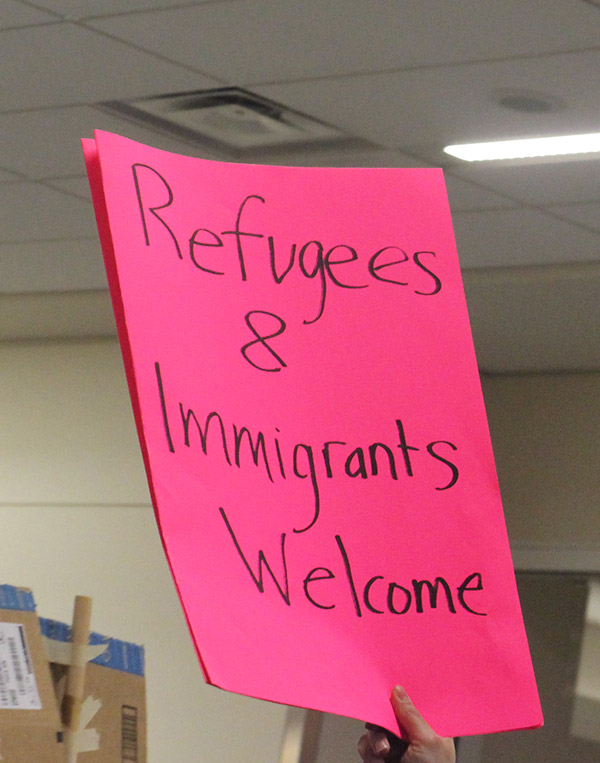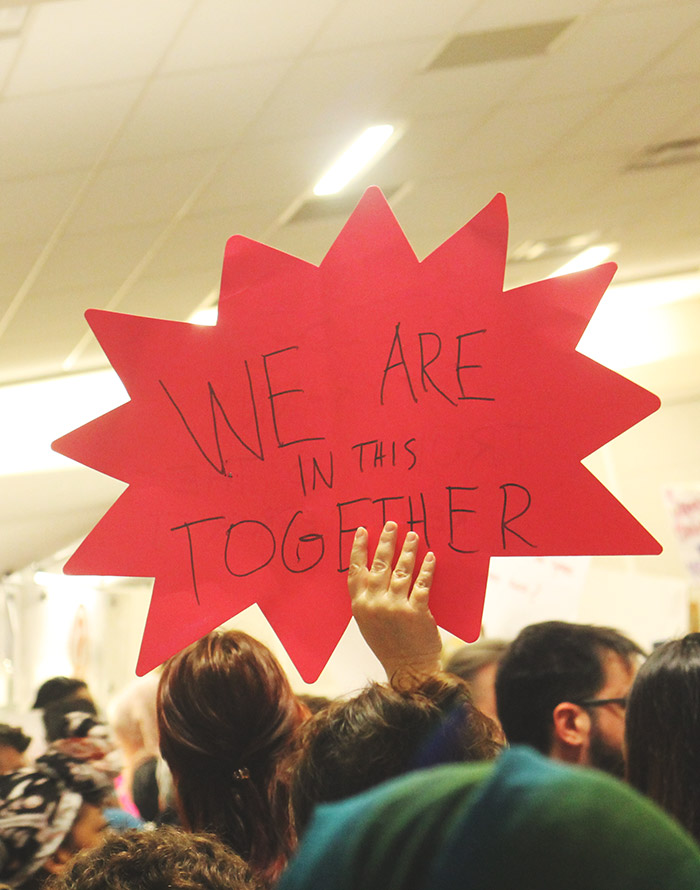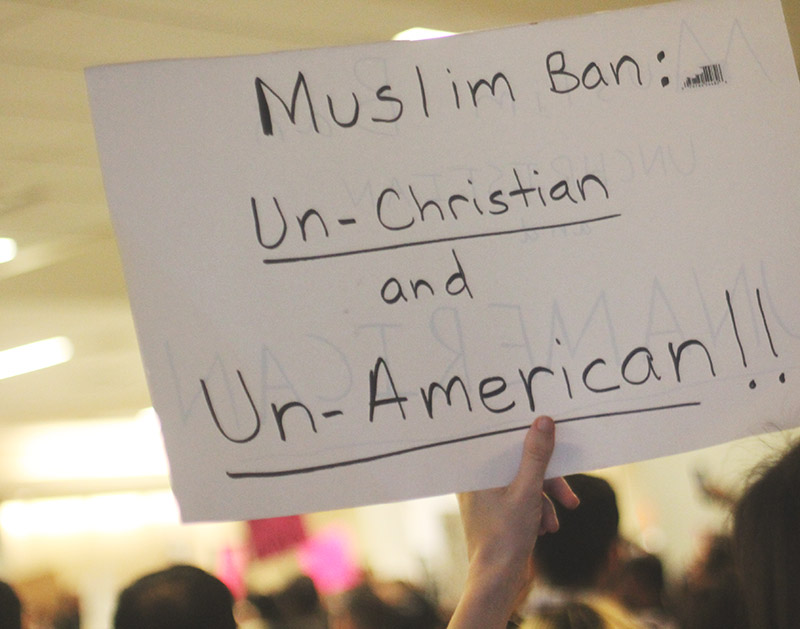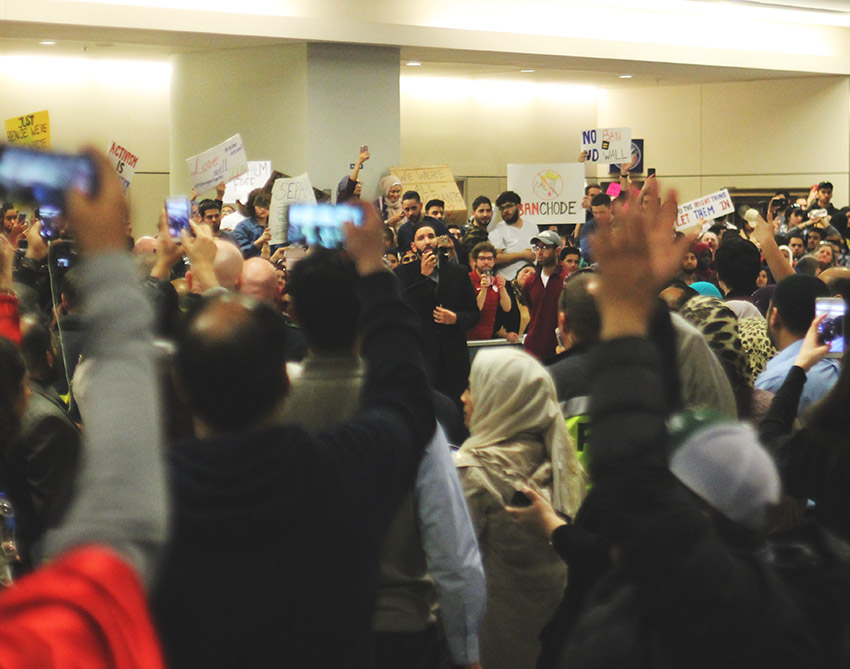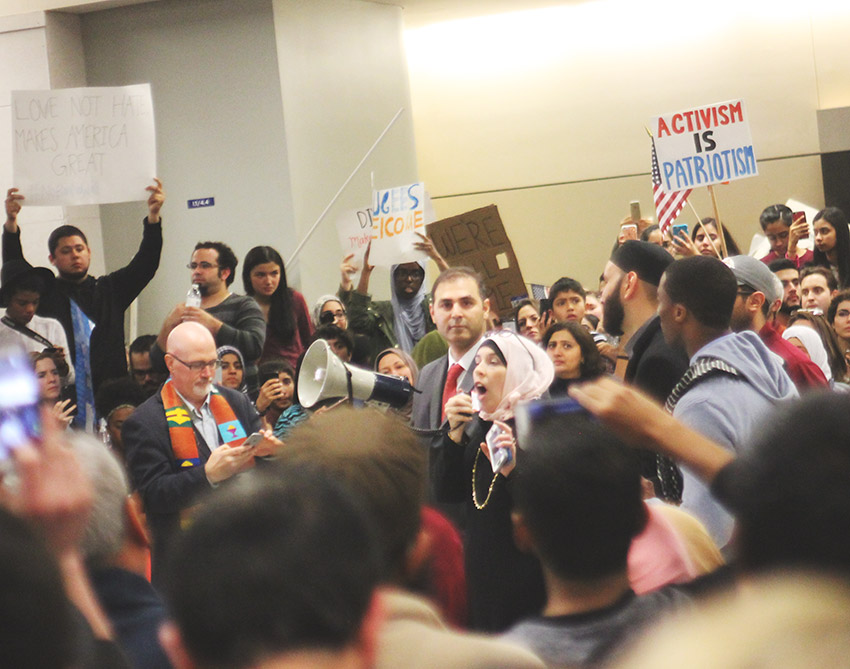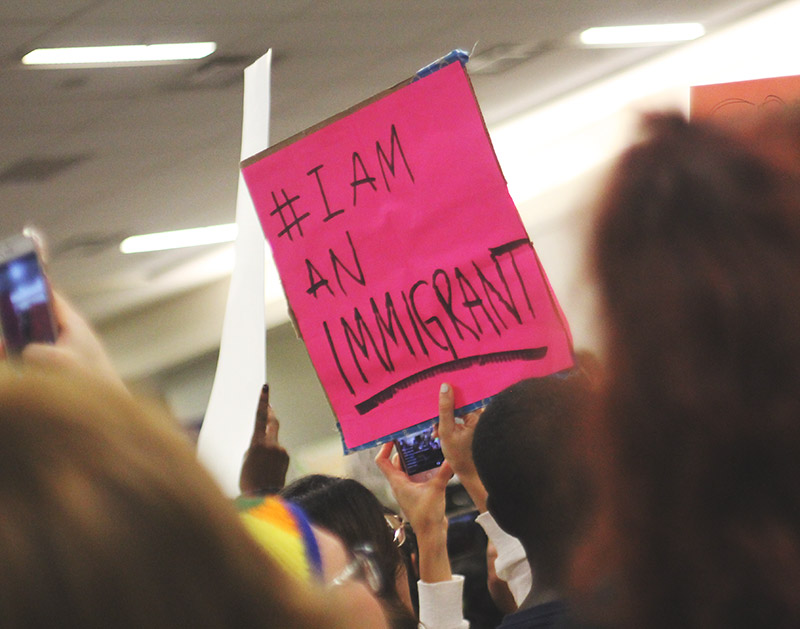Scenes From This Weekend’s Travel Ban Protests At Dallas/Fort Worth International Airport.
Information was scant within Dallas/Fort Worth International Airport’s Terminal D on Sunday afternoon. There were just so many unknowns.
How many people had been detained by U.S. Customs and Border Protection agents here over the weekend as a result of President Donald J. Trump’s Friday-signed executive order to ban nationals from seven Muslim-majority countries from entering the United States for at least the next 90 days? Was it 50, as the Fort Worth Star-Telegram had reported? Was it fewer than that? With established area media outlets reporting that nine detainees had already been released to that point, how many immigrants still remained in custody, being questioned and held by airport security? What did the shared reports of apologetic statements from government officials really mean? What was going on in the out-of-sight, so-called “war room” where more than 100 area lawyers had gathered to do what they could to help the detainees?
Every now and then, small groups among the many gathered here would hunch around a smartphone to try to find answers. From time to time, spokespeople would address the crowds over a megaphone — but they were tough to hear clearly, and they didn’t truly seem to know much, either.
With so many questions swirling about, and very few direct answers coming, people mostly figured it best to just keep their focus on the issue at hand, to keep vigilant and to stay loud.
And so they did: More than 1,000 strong, people of all races, ages and creeds filled this welcoming area for international travelers at Terminal D’s Gate 23, continuously chanting as they stood shoulder to shoulder. Their rallying cries were plentiful and varied, sometimes confusing arriving travelers who weren’t quite sure what to make of the spectacle, although they almost uniformly whipped their cell phones out to document the scene just the same.
“This is what democracy looks like,” was, as expected, a popular group-shout, a sort of pat on these protestors’ own backs, if not an outright act of hopeful self-assurance.
“Say it loud, say it clear: Refugees are welcome here,” was a similarly oft-repeated line.
“The people united will never be defeated,” rang out a separate popular cry.
Another chant — “I believe that we will win!” — owed its familiarity, heard often here over the beating of bongos, to the popularity of the U.S. Men’s National Soccer Team. Other shouts were cribbed from popular music: “No Trump! No KKK! No fascist USA!” stemmed from the lore of ’80s Austin hardcore act M.D.C.; “We gon’ be alright!” was a more modern reference to the politically charged raps of Kendrick Lamar.
Perhaps the most unique chant of all, though, was a cry against obstruction that took its influence from a 15-year-old Ludacris single: “Move, Trump! Get out the way!” the attendees screamed, some even dabbing as they did.
Surely, there are many things that can be said about the protester turnout at Terminal D this weekend — crowds started gathering here on Saturday — but one thing seems clear, thanks in part to that Ludacris-inspired chant. This crowd was American as could be. Really: What’s more American than appropriating a popular rap song for use in a moment like this?
That notion was likely not lost on at least one protester on hand, who walked around carrying a yellow sign that read, “If you’re waking up in a state of rage, welcome to Blackness.” Hers was just one of many charged signs being waved about and hoisted into the air between and during those chants in the airport terminal. (See above slideshow for pictures of more signs.)
For all of the emotion on display, though, the protest was a peaceful affair. And, devoid of much tangible information, it was singularly minded: These people were here to make noise, and to leave no doubts of their displeasure.
Airport security, rather than fight these efforts, mostly did what they could to keep things orderly. None of the airport officials seemed to mind that an Au Bon Pain shop and an information kiosk had been abandoned by workers and taken over by protesters as collection locations for food and drinks to keep the people here fed and hydrated. Instead, these uniformed officials just did what they could to direct people to designated standing areas and keep the walkways through this section of the airport clear, their hope being that travelers going about more-standard business here could cross through this area as easily as possible.
Of course, those paths were used for other purposes, too: From those kiosks and other tables along the outer edges or the room that had been drafted into the cause, protesters picked up collected trays of food to pass out to the people who lined the roped-off designated protest areas. It was a broad menu: Pizza and fried chicken were popular indulgences; bananas and Girl Scout Cookies were available, too, but in smaller amounts; one affable man walked about the space handing out Jack in the Box monster tacos from a sack he’d picked up while on the way to the airport; another woman quietly approached protesters asking if anyone wanted some of the vegan food she’d brought along to help the cause. All day long, dollies filled with bottle water were rolled into the area.
Outside the terminal, there wasn’t too much to distinguish this from just another day at the airport. The protests were mostly kept indoors, and aside from a few extra officers milling about and keeping an eye on things, the scene mostly looked like business as usual.
Maybe it was. In Trump’s America, protests have become commonplace. That’s perhaps a frightening realization, but it has its perks. People now know what to expect at these things. They were respectful of one another’s space, courteous to officers, flashing smiles at strangers and excusing one another as they slid past one part of the room to get to another. They did their best to hush when the protest’s designated spokespeople — namely Omar Suleiman (of Yaqeen Institute for Islamic Research) and Alia Salem (of CAIR DFW) — addressed the crowds to share any updates they could, cheering when news of detainees being released but then quickly quieting down again to attempt to hear any additional reveals.
At 6 p.m. on Sunday, Suleiman addressed the room for a final statement on the weekend: “Guys, congratulations,” he announced to applause before confirming what the news had been reporting for some four hours at this point, that nine of the detainees kept on the other side of this terminal’s walls had been released to their patiently awaiting families.
A few hours earlier, he’d told the crowd that there were at least two more travelers being detained. It’s unclear what fate met those people. It was uncertain, too, when this fight would end: Despite federal judge rulings aimed at striking it down, the repercussions of the travel ban being fought at Terminal D this weekend persists; into last night and even today, reports of more detainees filled the Twitter feeds of the lawyers on the scene.
Suleiman acknowledge this, but announced just the same that it was time, in his estimation, for the crowds to begin dispersing. He asked that people pay attention to social media in case it was determined that a return to protesting was merited. Then he and Salem urged those gathered to clean up after themselves and to leave the terminal. Slowly but surely, people began to do just that as Suleiman and Salem offered one last thanks for the effort.
“This is Dallas,” Suleiman said with pride. “I’m so proud of you all. Thank you for responding to the call.”
With that, this particular weekend of dissent in Dallas came to its close. And the crowds — still not greatly informed about the situation, but assured that their presence had been of great help — accepted that decree. They turned their backs on the terminal and crossed the street to pile into their cars and return home.
There, presumably, they’d await the next call.

